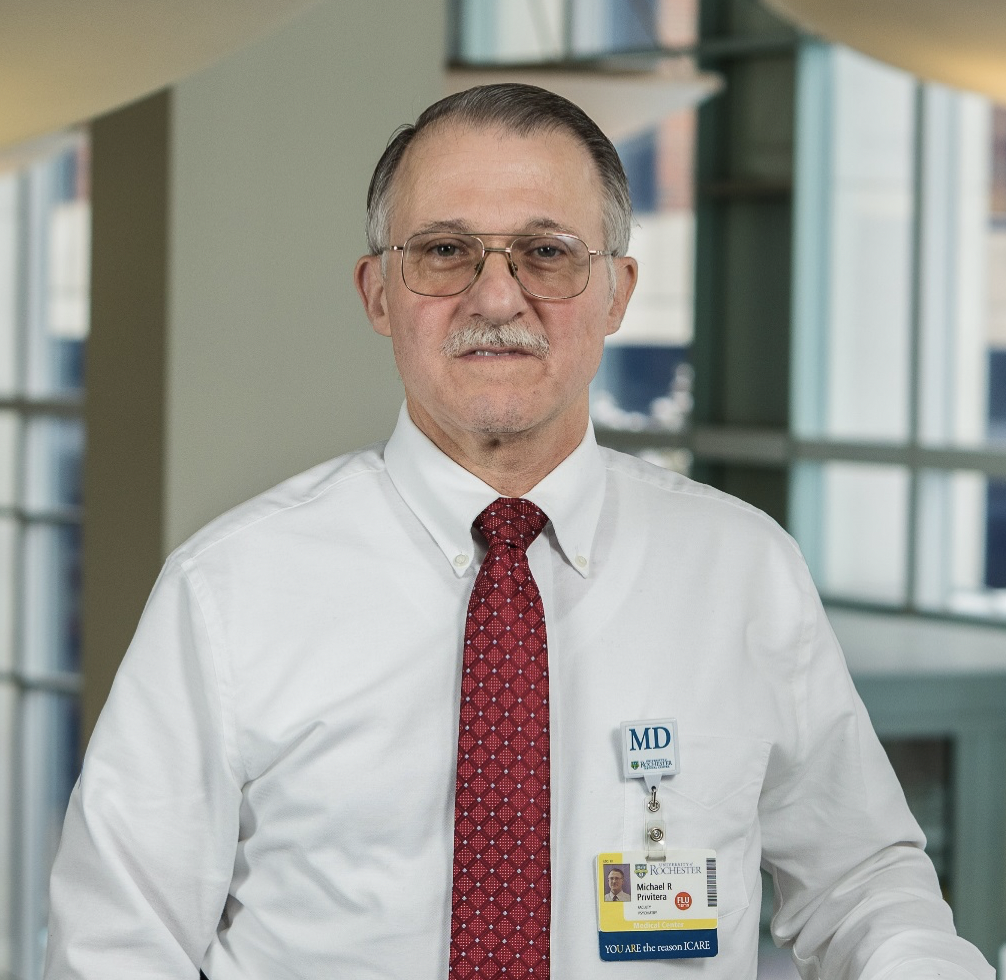Michael R. Privitera, MD, MS
Introducing Michael R. Privitera, MD, MS. Dr. Privitera is Professor of Psychiatry at University of Rochester Medical Center (URMC), and Medical Director, Medical Faculty and Clinician Wellness Program, which works on individual and organizational interventions to reduce clinician burnout.
Topic: Human Factor Ergonomics Applied to Healthcare Leadership
- Tell us how you have been able to apply Human Factor Ergonomics (HFE) to your own health system to reduce burnout and turnover?
- What is Extraneous Cognitive Load (ECL) and how does this contribute to burnout?
- What are 2 key ways in which you have used HFE to address ECL and Burnout improving your healthsystem bottom line?
For more information or to contact Dr. Privitera visit his website at http://www.michaelrpriviteramd.com/
Integrating Patient Safety and Clinician Wellbeing by Michael R. Privitera, MD, MS and Kate MacNamee, MS
ABSTRACT: In the dynamic and stressful environment of healthcare, leadership training has not evolved to incorporate the rapid technology advancement with the connectivity and enhanced accountability that has come with it. Hence, there is a gap in leader best practice to account for human adaptation lagging behind technological advances in healthcare. Leadership’s basic level understanding of human factors could help prevent or mitigate negative impact from the variety of externally imposed expectations on clinicians that currently drive many hospital leader decisions. The new models proposed here build on traditional safety models of systemic barriers or defenses used in complex systems but integrate a consideration for human factors affecting outcomes. This framework can help leaders more realistically weigh risks and benefits of healthcare initiatives to avoid negative consequences of their decisions.
Read the complete article here.
Michael R. Privitera, MD, MS
Dr. Privitera is Professor of Psychiatry at University of Rochester Medical Center (URMC), and Medical Director, Medical Faculty and Clinician Wellness Program, which works on individual and organizational interventions to reduce clinician burnout. He received a Patient Safety Award 2018-2019 from his malpractice carrier MCIC. The goal of this project was to deliver a Human Factor-Based Leadership curriculum that uses an Integrated Model of Patient Safety and Staff wellbeing which was developed over a six year period. The outcome of this project helped leaders identify and reduce latent conditions in healthcare systems that contribute to error and clinician burnout.
He was Chair 2015-2019, Medical Society of the State of New York Task Force on Physician Stress and Burnout and stepped down from this position to focus upon making better known the connection of clinician wellbeing to patient wellbeing.
Dr Privitera was a member of the Federation of State Medical Boards Task Force on physician burnout, which led to their policy recommendations of 2018 of limiting state board physician mental health questions to current impairment and not about past psychiatric history to help encourage physicians to seek help and avoid stigma. He has presented on Integrated Model: Patient Safety and Clinician Wellbeing, and Human factor-Based Leadership at the International Symposium of Human Factors in Healthcare, Institute for Healthcare Improvement Patient Safety Congress and American Hospital Association Leadership Summit.
He was a member, National Institute of Occupational Safety and Health Office for Total Worker Health® and the NIOSH Healthy Work Design and Well-Being Program: Healthy Work Design Council in 2020. He has written in publications of Physician Leadership Journal, The Joint Commission, American Hospital Association, National Patient Safety Foundation, Medscape, Journal of Hospital Administration and Journal of Legal Medicine on physician burnout.

Dr. Katie Cole
Affectionately called “The Healer’s Healer,” Dr. Katie Cole is an award-winning psychiatrist and consultant who works with physicians and organizations to reinvigorate their passion for medicine, create healthier work/life balance, and prevent costly burnout.

